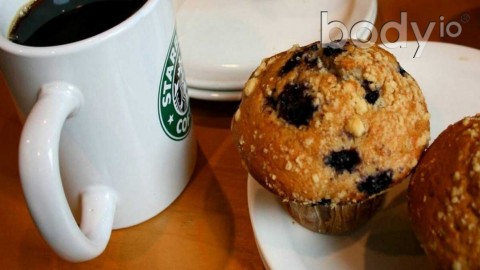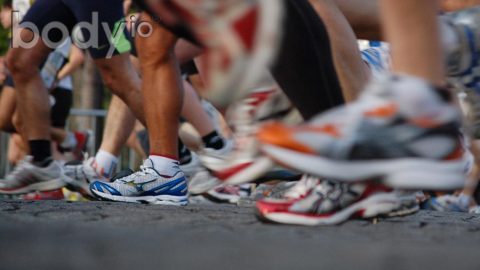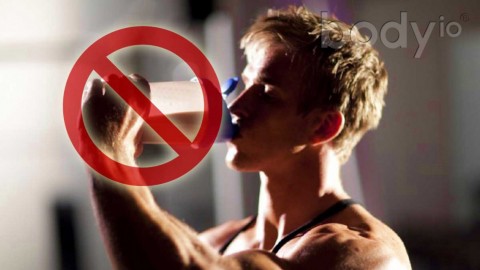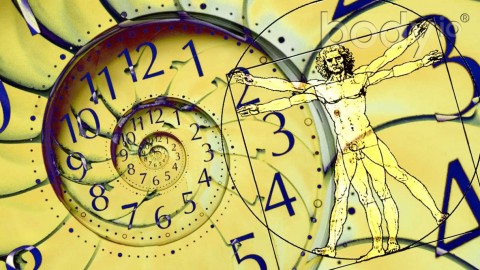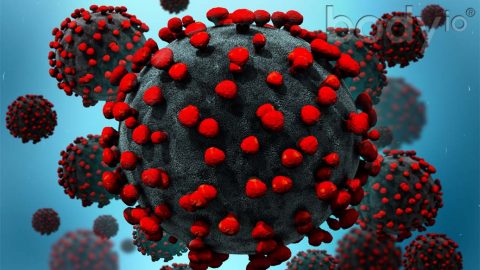From the archives.
“How To Starve Your Way To Health” adorns the cover of this month’s Harper’s magazine and I took it as a call to act. I haven’t said much about fasting—intermittent or otherwise—because I know there’s a lot right about it. By right, I mean healthy. But I know there’s something very wrong too. Until recently, I didn’t know what, only a non-scientific, experience-based something.
The Harper’s article covers the history and basics of long term fasting, which has done several people, including the Harper-article’s author, a good turn, just as intermittent fasting (IF) does for its users. Although long-term fasting interests me, it’s a side note compared with IF which interests a lot more people, including regular visitors to the Body.IO Forums.
I was skeptical of IF before ever trying it. Not because of the claims; not because the entire idea hinges on a solitary, poorly researched physiological reaction; not because it wasn’t my own pet project. I was skeptical because I’m a scientist and IF had no long-term studies dealing with body composition changes. Any claims—good or bad—needed investigating, not codifying.
What piqued my interest in IF in the first place is it’s similarity to Carb Back-Loading. When I was developing the Carb Backloading (CBL) protocol, I first learned about IF from the book The Warrior Diet by Ori Hofmekler. The gist of the similarity: CBL might be optimized intermittent fasting, or IF might accelerate CBL results. Either IF is CBL taken to its logical conclusion (not eating anything all day certainly means your carb count stayed below the maximum threshold), or CBL is a refinement of IF.
CBL is Intermittent Fasting, Evolved
IF misses—as did the author of the Harper’s article—the fact that metabolically fasting works because of the absence of carbohydrates, not simply the absence of food. When you strip carbs from the diet, lipolysis (the breakdown of triglycerides into fatty acids) skyrockets and lipogenesis (the re-esterification of fatty acids and glycerine into triglycerides) are stunted. Lipolysis means fat cells get empty, lipogenesis means full. These two processes occur constantly and simultaneously, regulated by insulin. High insulin drives lipogenesis; low, lipolysis. Remove carbs—and the resulting insulin spike—and the switch flips, increasing lipolysis over lipogenesis[1-2].
Carbs and insulin even spark the metabolism caused during refeeding if carbs or calories have been restricted for prolonged periods. It’s not food in general, but the carbs perform the metabolic magic[3-19]. Try intermittent fasting with protein-and-fat-only refeedings and you’ll see what I mean or check the research. Better yet, do both so that experience makes the facts more salient.
It appears as though carbs play sinner and saint. It all depends on when you use them.
The Growth Hormone Hypothesis
Research definitely shows a GH response that occurs during a 24 to 36 hours fast. Arguably, this effect spawned the resurgence of IF in the modern era (fasting, intermittently or otherwise, gained some popularity back in the 1960s[20]).
We can trace today’s variant to a 1988 paper[28] (yes, I put the link because I want you to read it). Note how responsive volunteers were to growth-hormone-releasing hormone (GHRH) at 8A.M., pre-feeding and that this response existed independent of the fed or fasted state. This is identical to the GH spike that follows the early A.M. rise in ghrelin (which is the most potent natural GH secretagogue of which we know[21-23]), if you forgo early-morning carbs[24-27].
The missing ingredient—or overlooked ingredient—again is the absence of carbs, not just the absence of food.
None of the research demonstrating the increased GH secretion—which can be two-fold normal[27]—tests more than a week of IF’ing[28-32]. Studies done on sports performance during Ramadan* show that any advantages abate within a four week period and, in general, sports performance decreases[33-38]. So it is possible that whatever advantage the GH burst does produce subsides over time, especially metabolic, for which direct supporting research does exist[39].
*(Realize that Ramadan is not in direct accordance with today’s popular IF protocols, as Ramadan fasts last only about 14 hours and the normal intermittent fast lasts 20-plus hours. It is reasonable, however, to question IF based on these observations, especially when research does exist to confirm the comparison.)
Don’t Kid Yourself
Don’t be rash and dismiss IF yet. Lots of people see results with IF, but adherents only observe certain things in themselves while living free. Without a controlled experiment, or reliable measuring device, these results only give us questions that need answering.
If we should realize anything about our status as human, it’s that being human means noticing anything—however trivial or disconnected—that supports our expectations and ignoring everything that doesn’t. It’s called belief bias and we all do it, even physicists.
Sir Francis Bacon developed our current framework of the scientific method in his Novum Organum for the simple reason that he lacked trust even in his own judgment. He needed a bullet-proof process to prevent fooling himself into false beliefs. His solution: the scientific method of observe, hypothesize, experiment, confirm or deny, and start over by observing anew. If only we were all so wise.
Someone offering as proof, “well, it worked for me,” kills all progress in the world of human performance and creates an environment where fact battles popularity, a fight everybody loses. (How else could Weight Watchers survive this long?)
Stay Tuned
What I have yet to share, what forced me to discover the scientific something that is wrong with IF, is my own trial with intermittent fasting. But this article has gone on long enough, it’s 2 in the morning and I present at a conference this weekend for which I have yet to prepare. I’ll save my experience, my discovery and a full critique of IF for the next few articles.
I will leave you with this, however, the reason I don’t recommend IF: it is very definitely anti-anabolic—that’s right, prevents muscle growth.
[expand title=”References (click to expand)”]
- Volek JS, Sharman MJ, Love DM, Avery NG, Gómez AL, Scheett TP, Kraemer WJ.Body composition and hormonal responses to a carbohydrate-restricted diet. Metabolism. 2002 Jul;51(7):864-70.
- Borer KT. Hormonal regulation of fuel use in exercise. In: Exercise Endocrinology. Champaign, IL: Human Kinetics, 2003:97–120.
- Marques-Lopes I, Forga L, Martinez JA.Thermogenesis induced by a high-carbohydrate meal in fasted lean and overweight young men: insulin, body fat, and sympathetic nervous system involvement. Nutrition. 2003 Jan;19(1):25-9.
- Horton TJ, Hill JO. Prolonged fasting significantly changes nutrient oxidation and glucose tolerance after a normal mixed meal. J Appl Physiol. 2001 Jan;90(1):155-63.
- Danforth E Jr, Horton ES, O’Connell M, Sims EA, Burger AG, Ingbar SH, Braverman L, Vagenakis AG. Dietary-induced alterations in thyroid hormone metabolism during overnutrition. J Clin Invest. 1979 Nov;64(5):1336-47.
- Glick Z, Wu SY, Lupien J, Reggio R, Bray GA, Fisher DA. Meal-induced brown fat thermogenesis and thyroid hormone metabolism in rats. Am J Physiol. 1985 Nov;249(5 Pt 1):E519-24.
- Jenkins AB, Markovic TP, Fleury A, Campbell LV. Carbohydrate intake and short-term regulation of leptin in humans. Diabetologia. 1997 Mar;40(3):348-51.
- Romon M, Lebel P, Velly C, Marecaux N, Fruchart JC, Dallongeville J. Leptin response to carbohydrate or fat meal and association with subsequent satiety and energy intake. Am J Physiol. 1999 Nov;277(5 Pt 1):E855-61.
- Romon M, Lebel P, Fruchart JC, Dallongeville J. Postprandial leptin response to carbohydrate and fat meals in obese women. J Am Coll Nutr. 2003 Jun;22(3):247-51.
- Wisse BE, Campfield LA, Marliss EB, Morais JA, Tenenbaum R, Gougeon R. Effect of prolonged moderate and severe energy restriction and refeeding on plasma leptin concentrations in obese women. Am J Clin Nutr. 1999 Sep;70(3):321-30.
- Kolaczynski JW, Considine RV, Ohannesian J, Marco C, Opentanova I, Nyce MR, Myint M, Caro JF. Responses of leptin to short-term fasting and refeeding in humans: a link with ketogenesis but not ketones themselves. Diabetes. 1996 Nov;45(11):1511-5.
- Horton TJ, Drougas H, Brachey A, Reed GW, Peters JC, Hill JO. Fat and carbohydrate overfeeding in humans: different effects on energy storage. Am J Clin Nutr. 1995 Jul;62(1):19-29.
- Westerterp KR, Wilson SA, Rolland V. Diet induced thermogenesis measured over 24h in a respiration chamber: effect of diet composition. Int J Obes Relat Metab Disord. 1999 Mar;23(3):287-92.
- Schutz Y, Acheson KJ, Jequier E. Twenty-four-hour energy expenditure and thermogenesis: response to progressive carbohydrate overfeeding in man. Int J Obes. 1985;9 Suppl 2:111-4.
- Danforth E Jr, Burger AG, Wimpfheimer C. Nutritionally-induced alterations in thyroid hormone metabolism and thermogenesis. Experientia Suppl. 1978;32:213-7. Review.
- Dallosso HM, James WP. Whole-body calorimetry studies in adult men. 1. The effect of fat over-feeding on 24 h energy expenditure. Br J Nutr. 1984 Jul;52(1):49-64.
- Arkinstall MJ, Tunstall RJ, Cameron-Smith D, Hawley JA. Regulation of metabolic genes in human skeletal muscle by short-term exercise and diet manipulation. Am J Physiol Endocrinol Metab. 2004 Jul;287(1):E25-31.
- Mulligan C, Moreau K, Brandolini M, Livingstone B, Beaufrere B, Boirie Y. Alterations of sensory perceptions in healthy elderly subjects during fasting and refeeding. A pilot study. Gerontology. 2002 Jan-Feb;48(1):39-43.
- Patel MS, Owen OE, Goldman LI, Hanson RW. Fatty acid synthesis by human adipose tissue. Metabolism. 1975 Feb;24(2):161-73.
- Bloom WL. Fasting as an introduction to the treatment of obesity. Metabolism. 1959 May;8(3):214-20.
- Kojima M, Hosoda H, Date Y, Nakazato M, Matsuo H, Kangawa K. Ghrelin is a growth-hormone-releasing acylated peptide from stomach. Nature. 1999 Dec 9;402(6762):656-60.
- Takaya K, Ariyasu H, Kanamoto N, Iwakura H, Yoshimoto A, Harada M, Mori K, Komatsu Y, Usui T, Shimatsu A, Ogawa Y, Hosoda K, Akamizu T, Kojima M, Kangawa K, Nakao K. Ghrelin strongly stimulates growth hormone release in humans. J Clin Endocrinol Metab. 2000 Dec;85(12):4908-11.
- Peino R, Baldelli R, Rodriguez-Garcia J, Rodriguez-Segade S, Kojima M, Kangawa K, Arvat E, Ghigo E, Dieguez C, Casanueva FF. Ghrelin-induced growth hormone secretion in humans. Eur J Endocrinol. 2000 Dec;143(6):R11-4.
- Natalucci G, Riedl S, Gleiss A, Zidek T, Frisch H. Spontaneous 24-h ghrelin secretion pattern in fasting subjects: maintenance of a meal-related pattern. Eur J Endocrinol. 2005 Jun;152(6):845-50.
- Koutkia P, Canavan B, Breu J, Johnson ML, Grinspoon SK. Nocturnal ghrelin pulsatility and response to growth hormone secretagogues in healthy men. Am J Physiol Endocrinol Metab. 2004 Sep;287(3):E506-12.
- Shiiya T, Nakazato M, Mizuta M, Date Y, Mondal MS, Tanaka M, Nozoe S, Hosoda H, Kangawa K, and Matsukura S. Plasma ghrelin levels in lean and obese humans and the effect of glucose on ghrelin secretion. J Clin Endocrinol Metab 87: 240–244, 2002.
- Salgin B, Marcovecchio ML, Humphreys SM, Hill N, Chassin LJ, Lunn DJ, Hovorka R, Dunger DB. Effects of prolonged fasting and sustained lipolysis on insulin secretion and insulin sensitivity in normal subjects. Am J Physiol Endocrinol Metab. 2009 Mar;296(3):E454-61.
- *Ho KY, Veldhuis JD, Johnson ML, Furlanetto R, Evans WS, Alberti KG, Thorner MO. Fasting enhances growth hormone secretion and amplifies the complex rhythms of growth hormone secretion in man. J Clin Invest. 1988 Apr;81(4):968-75.
- Aimaretti G, Colao A, Corneli G, Pivonello R, MacCario M, Morrison K, Pflaum CD, Strasburger CJ, Lombardi G, Ghigo E. The study of spontaneous GH secretion after 36-h fasting distinguishes between GH-deficient and normal adults. Clin Endocrinol (Oxf). 1999 Dec;51(6):771-7.
- Hartman ML, Pezzoli SS, Hellmann PJ, Suratt PM, Thorner MO. Pulsatile growth hormone secretion in older persons is enhanced by fasting without relationship to sleep stages. J Clin Endocrinol Metab. 1996 Jul;81(7):2694-701.
- Hartman ML, Clayton PE, Johnson ML, Celniker A, Perlman AJ, Alberti KG, Thorner MO. A low dose euglycemic infusion of recombinant human insulin-like growth factor I rapidly suppresses fasting-enhanced pulsatile growth hormone secretion in humans. J Clin Invest. 1993 Jun;91(6):2453-62.
- Hartman ML, Veldhuis JD, Johnson ML, Lee MM, Alberti KG, Samojlik E, Thorner MO. Augmented growth hormone (GH) secretory burst frequency and amplitude mediate enhanced GH secretion during a two-day fast in normal men. J Clin Endocrinol Metab. 1992 Apr;74(4):757-65.
- Chtourou H, Hammouda O, Chaouachi A, Chamari K, Souissi N. The Effect of Time-of-Day and Ramadan Fasting on Anaerobic Performances. Int J Sports Med. 2012 Feb;33(2):142-7.
- Meckel Y, Ismaeel A, Eliakim A. The effect of the Ramadan fast on physical performance and dietary habits in adolescent soccer players. Eur J Appl Physiol. 2008 Apr;102(6):651-7.
- Souissi N, Souissi H, Sahli S, Tabka Z, Dogui M, Ati J, Davenne D. Effect of Ramadan on the diurnal variation in short-term high power output. Chronobiol Int. 2007;24(5):991-1007.
- Faye J, Fall A, Badji L, Cisse F, Stephan H, Tine P. Effects of Ramadan fast on weight, performance and glycemia during training for resistance. Dakar Med. 2005;50(3):146-51.
- Zerguini Y, Kirkendall D, Junge A, Dvorak J. Impact of Ramadan on physical performance in professional soccer players. Br J Sports Med. 2007 Jun;41(6):398-400.
- Roky R, Iraki L, HajKhlifa R, Lakhdar Ghazal N, Hakkou F. Daytime alertness, mood, psychomotor performances, and oral temperature during Ramadan intermittent fasting. Ann Nutr Metab. 2000;44(3):101-7.
- Soeters MR, Lammers NM, Dubbelhuis PF, Ackermans M, Jonkers-Schuitema CF, Fliers E, Sauerwein HP, Aerts JM, Serlie MJ. Intermittent fasting does not affect whole-body glucose, lipid, or protein metabolism. Am J Clin Nutr. 2009 Nov;90(5):1244-51.
[/expand]





